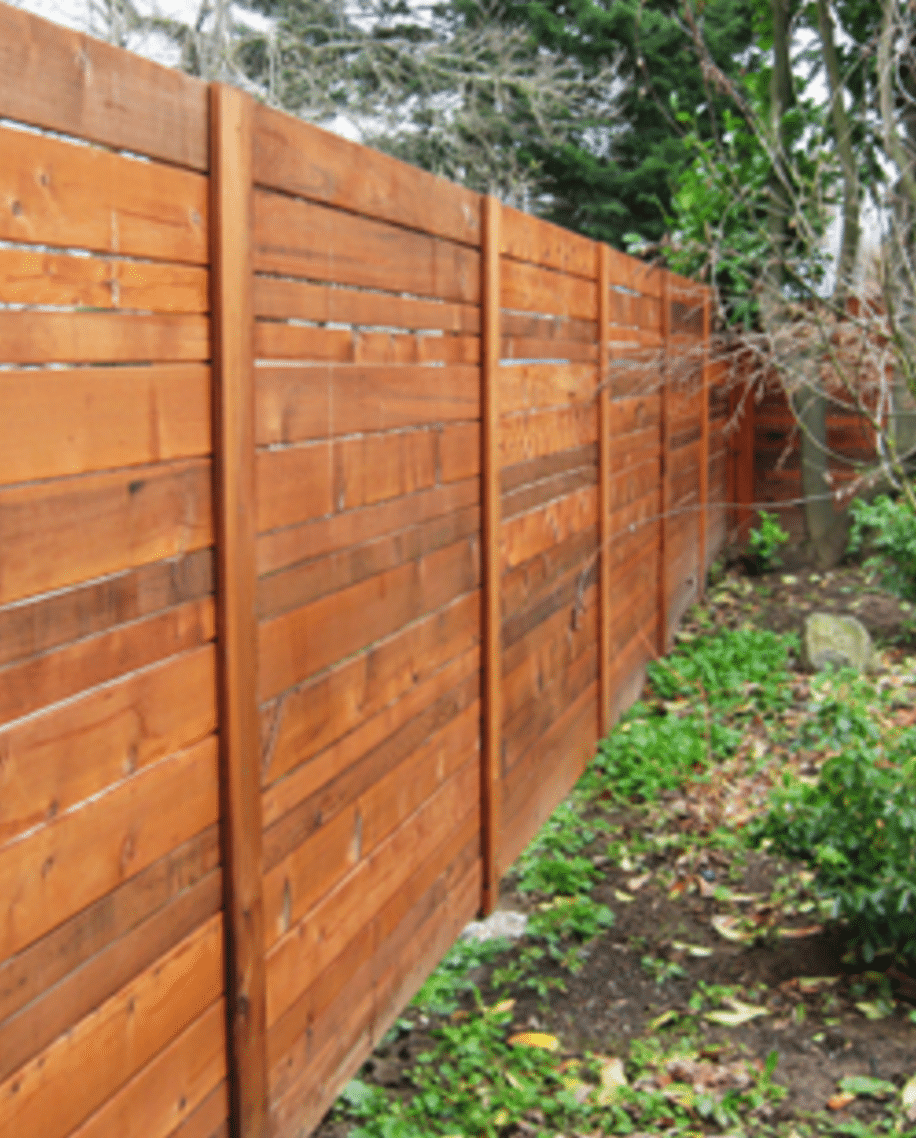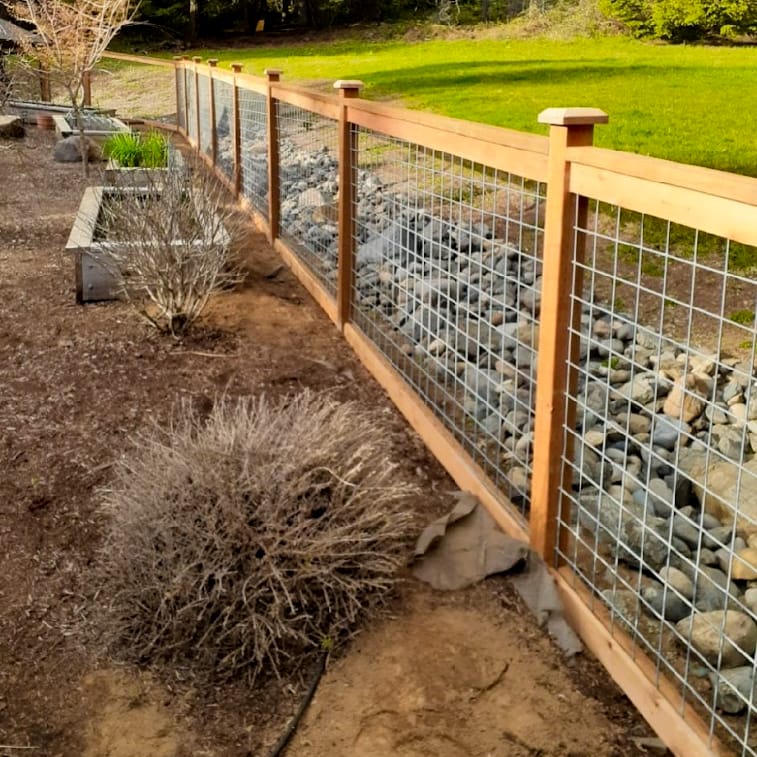All Categories
Featured
While a high fence might seem like the ideal alternative, the excellent elevation depends on a number of aspects, including security requirements, local policies, and the materials utilized. Below, we'll outline vital factors to consider to aid you choose the best fence elevation for optimum security.
![]()
If you reside in a neighborhood regulated by a property owners' organization (HOA), you should also review any specific standards they have for fence elevation, style, and materials. Abiding by these policies guarantees you prevent lawful problems and preserve an excellent relationship with your next-door neighbors.
Taller fences are much more difficult to range and can substantially decrease the probability of burglaries. Adding attributes like pointed tops, barbed wire, or perhaps electric secure fencing can even more enhance the obstacle's security. A fencing that reaches 8 feet or greater is frequently efficient at preventing most people from conveniently leaping over it.
![]()
Wooden Fencings: While wooden fencings provide privacy, they can be very easy to climb, specifically if there are no anti-climb features. For maximum safety, take into consideration a wooden fence that's 6 to 8 feet tall with sharp tops or trellis extensions that make it tougher to scale. Chain-Link Fences: Chain-link fences are commonly extra sturdy and budget friendly than timber, and they can be built to the needed elevation for security. To increase prevention, take into consideration adding barbed or razor cord ahead. These attributes inhibit climbing up and make the fence much more tough to violation. Wrought Iron Fencings: Wrought iron fencings are usually utilized for high-security objectives due to the fact that of their toughness and durability. Their vertical bars make it difficult to climb, and they can be built to 6 to 8 feet high with additional spikes or attractive anti-climb features to more secure the border. Vinyl Fences: Vinyl is a superb choice if you require a strong, personal fencing, however like timber, plastic fencings might need extra height or security attributes to discourage climbing. Go with a fencing that goes to least 6 feet high to make certain personal privacy and security. Each product offers various benefits in terms of aesthetics, longevity, and maintenance, so it is necessary to consider your certain needs and choices when picking a fencing.
Anti-Climb Features: Mounting pointed or sharp tops, trellis extensions, or security spikes on top of the fencing makes it harder for anyone to scale the fence. These attributes serve as a solid deterrent to potential intruders. Barbed or Razor Cable: Including barbed cord or razor wire at the top of your fencing increases protection dramatically. This is typically utilized in high-security areas, such as industrial buildings, yet can likewise be a good option for houses in high-risk areas. Electric Secure fencing: For top-level security, you might wish to consider adding an electric fence to your residential or commercial property. Electric secure fencing, when set up appropriately, can create a solid deterrent while staying fairly very discreet. It delivers a light shock to any person that tries to climb up the fencing or touch. Incorporating height with these additional functions makes sure that your fence supplies the greatest level of security.
Stabilizing the need for personal privacy and protection while maintaining the visual allure of your home can help you pick the appropriate height and material for your fencing. Make certain that your fencing matches the total design of your home and doesn't adversely affect the aesthetic allure.
![]()
By thoroughly considering all these aspects, you can develop a protected, exclusive, and attractive border around your residential or commercial property that uses both comfort and defense.

- Understand Resident Rules and Zoning Laws. The first action in choosing your fencing elevation is to acquaint on your own with local laws. Generally, front lawn fences are restricted to 3 to 4 feet, while yard fences can be as high as 6 to 8 feet or even more.
If you reside in a neighborhood regulated by a property owners' organization (HOA), you should also review any specific standards they have for fence elevation, style, and materials. Abiding by these policies guarantees you prevent lawful problems and preserve an excellent relationship with your next-door neighbors.
- Determine the Preferred Level of Safety. The level of safety and security you need is a significant consider figuring out the excellent fencing height. If you're looking to prevent laid-back intruders or keep children and pets inside the backyard, a fence between 4 to 6 feet might be adequate. Nonetheless, for greater protection requirements-- such as shielding versus thiefs or making sure safety and security in high-crime locations-- you might require a taller fence. A fencing elevation of 6 to 8 feet is usually suggested for ideal security.
Taller fences are much more difficult to range and can substantially decrease the probability of burglaries. Adding attributes like pointed tops, barbed wire, or perhaps electric secure fencing can even more enhance the obstacle's security. A fencing that reaches 8 feet or greater is frequently efficient at preventing most people from conveniently leaping over it.
- Choose the Right Product for Your Fencing. The product of your fence plays a vital role in its ability to supply safety. While taller fences are much better for protection, the type of material you utilize can prevent the effectiveness or boost of the height. Below are some popular fencing products for protection:

Wooden Fencings: While wooden fencings provide privacy, they can be very easy to climb, specifically if there are no anti-climb features. For maximum safety, take into consideration a wooden fence that's 6 to 8 feet tall with sharp tops or trellis extensions that make it tougher to scale. Chain-Link Fences: Chain-link fences are commonly extra sturdy and budget friendly than timber, and they can be built to the needed elevation for security. To increase prevention, take into consideration adding barbed or razor cord ahead. These attributes inhibit climbing up and make the fence much more tough to violation. Wrought Iron Fencings: Wrought iron fencings are usually utilized for high-security objectives due to the fact that of their toughness and durability. Their vertical bars make it difficult to climb, and they can be built to 6 to 8 feet high with additional spikes or attractive anti-climb features to more secure the border. Vinyl Fences: Vinyl is a superb choice if you require a strong, personal fencing, however like timber, plastic fencings might need extra height or security attributes to discourage climbing. Go with a fencing that goes to least 6 feet high to make certain personal privacy and security. Each product offers various benefits in terms of aesthetics, longevity, and maintenance, so it is necessary to consider your certain needs and choices when picking a fencing.
- Add Safety And Security Functions for Extra Defense. While height is essential, including additional protection features to your fence can enhance its effectiveness. Take into consideration the complying with additions:
Anti-Climb Features: Mounting pointed or sharp tops, trellis extensions, or security spikes on top of the fencing makes it harder for anyone to scale the fence. These attributes serve as a solid deterrent to potential intruders. Barbed or Razor Cable: Including barbed cord or razor wire at the top of your fencing increases protection dramatically. This is typically utilized in high-security areas, such as industrial buildings, yet can likewise be a good option for houses in high-risk areas. Electric Secure fencing: For top-level security, you might wish to consider adding an electric fence to your residential or commercial property. Electric secure fencing, when set up appropriately, can create a solid deterrent while staying fairly very discreet. It delivers a light shock to any person that tries to climb up the fencing or touch. Incorporating height with these additional functions makes sure that your fence supplies the greatest level of security.
- Think About Privacy and Aesthetic Preferences. While security should be your primary issue, it's additionally vital to consider the aesthetic allure of your fence. Tall fences might offer protection, yet they can often appear enforcing or unfriendly. If privacy is an issue, a solid wood or plastic fencing can supply both protection and privacy, while a functioned iron fence offers protection with an open view.
Stabilizing the need for personal privacy and protection while maintaining the visual allure of your home can help you pick the appropriate height and material for your fencing. Make certain that your fencing matches the total design of your home and doesn't adversely affect the aesthetic allure.

- Final Thoughts on Fencing Elevation and Protection. Selecting the appropriate fence elevation for optimum safety and security entails balancing numerous factors, consisting of regional laws, the level of safety needed, the material of the fencing, and added security features. In basic, a fencing elevation of 6 to 8 feet is ideal for many household homes, with taller fencings offering an added layer of security for risky locations.
By thoroughly considering all these aspects, you can develop a protected, exclusive, and attractive border around your residential or commercial property that uses both comfort and defense.
Latest Posts
Quick Bites and Dessert Deals With at Fuel Allie's.
Published Apr 22, 25
1 min read
Experience Waterfront Dining at Deauville Inn's Sunset Deck
Published Apr 21, 25
1 min read
Why Obtaining Pre-Qualified for Vehicle Financing Makes Feeling
Published Apr 21, 25
1 min read